A day in the life: Taylor County Corrections Officer
Editor's note: This the fourth story in the Abilene Reporter News' series "A Day in the Life," in which we shadow local law enforcement, public figures and other people of note to catch a glimpse of all that they do for the community every day.
You could feel it coating your lungs and your throat, before realizing what you were inhaling. There was no obvious smoke in the air, but you could feel the urge to cough, and your eyes began to water.
Pepper spray had carried over 100 yards across the Taylor County Jail, making a few staffers' eyes water before they began coughing. Officer Adam Darnall quickly escorted Reporter-News out of that hallway after a fellow officer had used pepper spray to pacify an inmate who became unruly.

This was just one piece of the typical working day of a corrections officer, in Abilene's local jail that houses anywhere from 600-800 inmates on any given day.
While the front of the jail looks small and unimposing, the jail inside is like a set of caverns that just keep going. Lieutenant Andre Moore described the Taylor County Jail as "its own little town," and that sentiment couldn't be more accurate.
Unsung heroes
Corrections officers are the heartbeat of the jail, and also the unsung heroes of Abilene. Much of the public never sees their tireless work or the inside of the jail. Their daily duties go on behind the scenes as they keep Abilene and Taylor County a little safer every day.
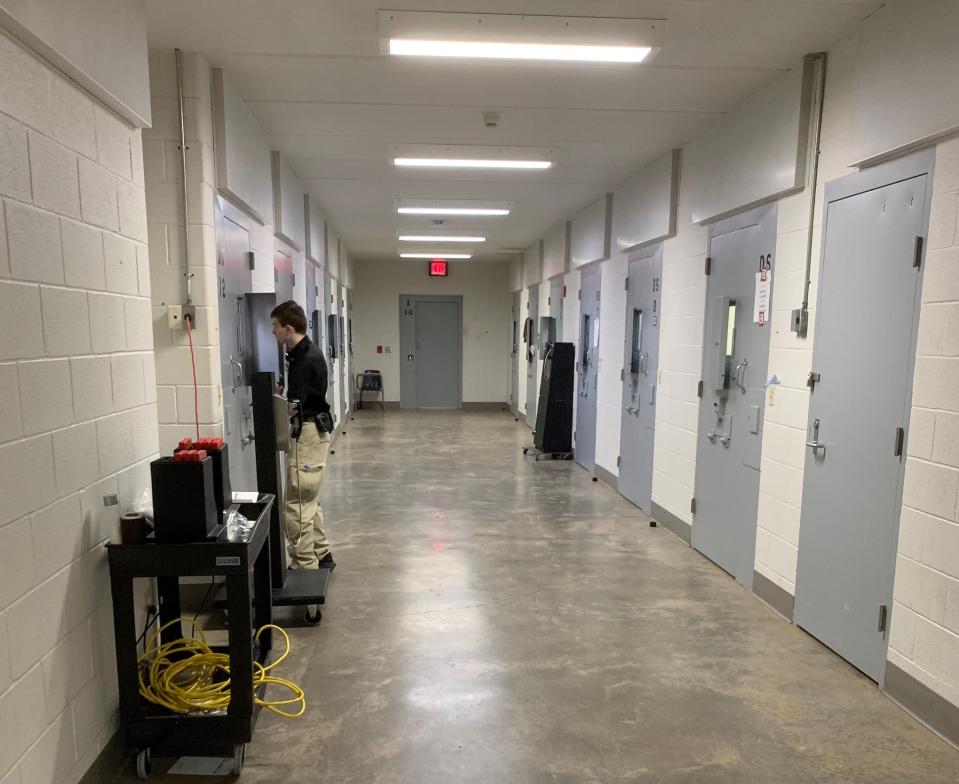
Officer Darnall summed up his career with one sentiment, purpose. He described seeing children walking alone to school each day, and he noted that he feels a sense of purpose, knowing where he fits in society, because he keeps our city safe for those children to walk to school unencumbered.
'Easiest career I've ever had'
Officer Adam Darnall started his working life as a welder and part-time Marine Reservist. In his early 20s, however, he felt a different calling and thought "Why not?" He started working for a large state prison, but moved to the Taylor County Jail in December 2021 and described it as "the easiest job" he has ever had.
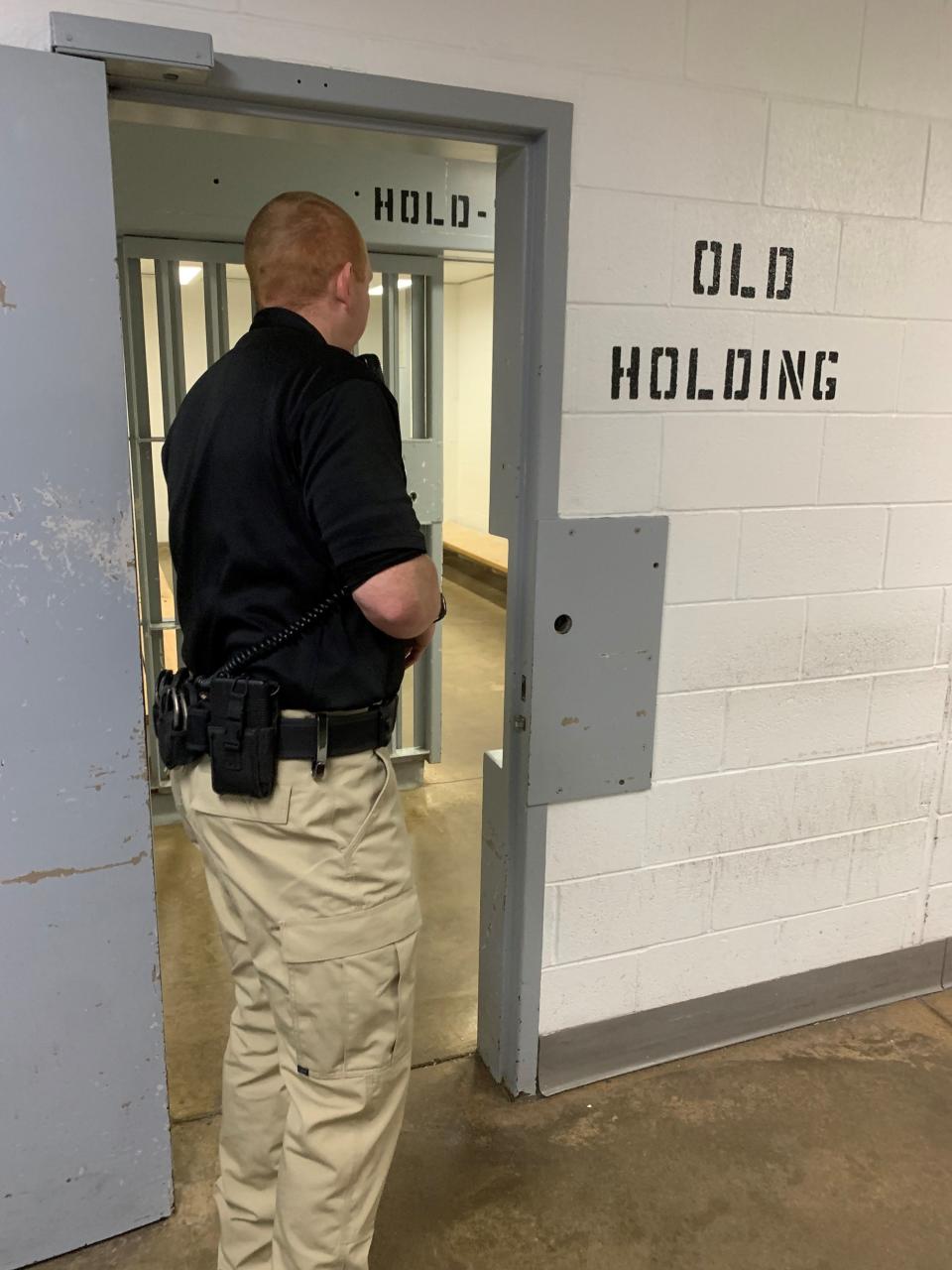
Darnall noted that most corrections officers as either make a career out of corrections or end up back on the job market within six months. This job is not for everyone, but clearly, Darnall is in it for the long haul.
Despite the risks these corrections officers accept, some do not even carry any weapon or form of self-defense. A few officers were seen to carry pepper spray, but Officer Darnall said he carries nothing.
He does not want to tempt any inmates into trying to take anything off of him that can be used as a weapon. Instead, he relies on himself, and his coworkers to keep him safe.
He credits teamwork as the key to getting the job done "because no one can do this job by themselves." He noted that every officer is less than 40 steps away from another officer at any given time during their eight-hour shift in the jail.
Reporter-News witnessed this in action during the shadowing day. The officers moved in unison, down the halls of the cavernous jail that resembled spokes of a wheel.
When one officer headed down one spoke or hallway, another officer came up a different hallway, always ensuring that help was never far away. The officers moved fluidly and quietly down the halls, as they performed their everyday duties.
Dealing with 'the whole gambit'
On the day Reporter-News shadowed Officer Darnall, the jail housed 645 inmates. The inmates range from people who didn't pay for their speeding tickets to those who are accused of conspiracy to commit capital murder.
He also sees inmates who simply made a mistake to repeat offenders who have been in the county jail more than four times. According to Darnall, corrections officers "deal with the whole gambit."
Corrections officers on duty do just about everything — from counting inmates, performing welfare checks, escorting nurses to administer medication to inmates, to monthly "shakedowns" of inmates' cells to ensure they do not have any contraband in their cells.
'Human beings just like us'
For a portion of the day, Reporter-News shadowed Sergeant E. Henry on the female inmate hall. She knew every inmate by name, and checked in on them with a friendly face, despite their incarcerated status.
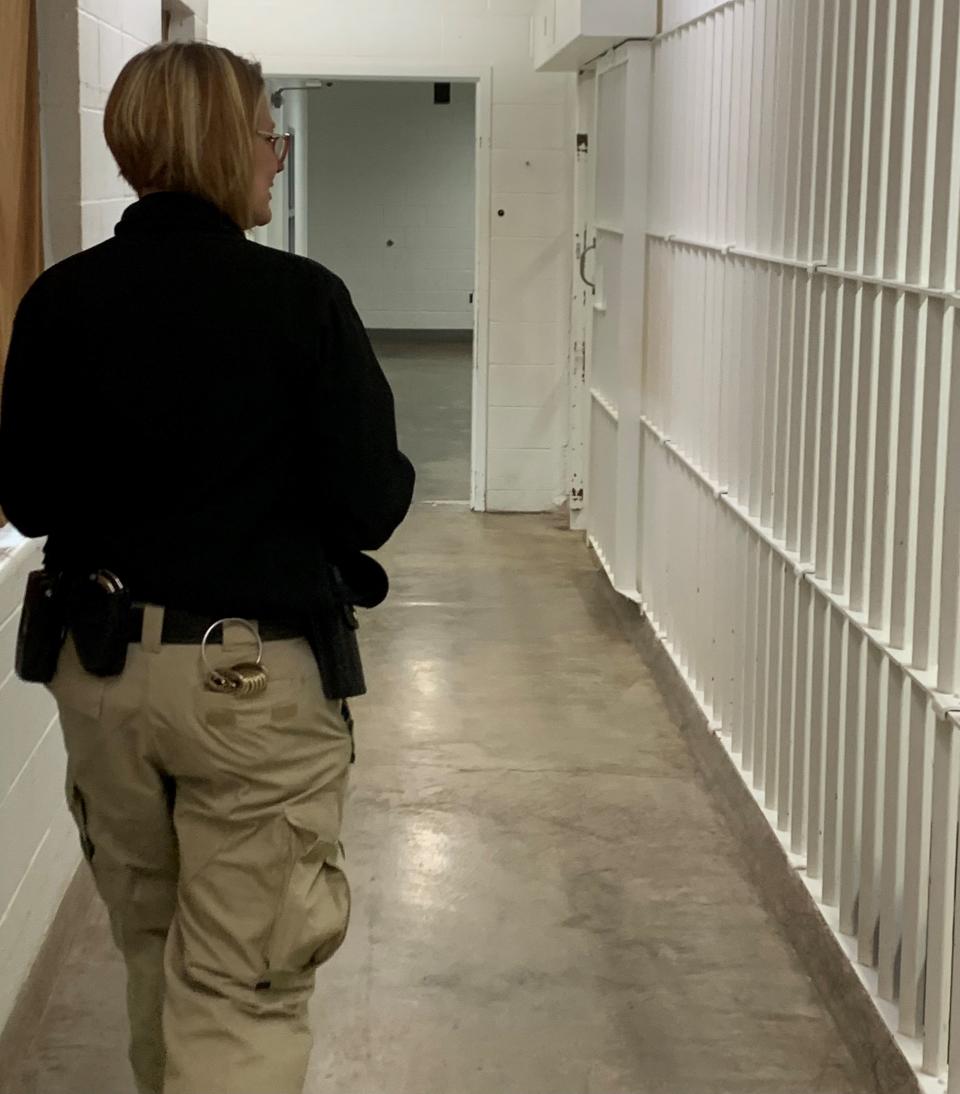
Henry also noted that some of her "trusted" inmates helped her sew uniforms or bedding that came apart. Trusted inmates are those who have proved to be trustworthy and non-combative.
In the male side of the jail, those who are trusted are given blue jump suits, instead of the usual orange and will actually run errands for corrections officers without being escorted the entire time. Some trusted inmates will even receive "3 for 1" time in some misdemeanor cases.
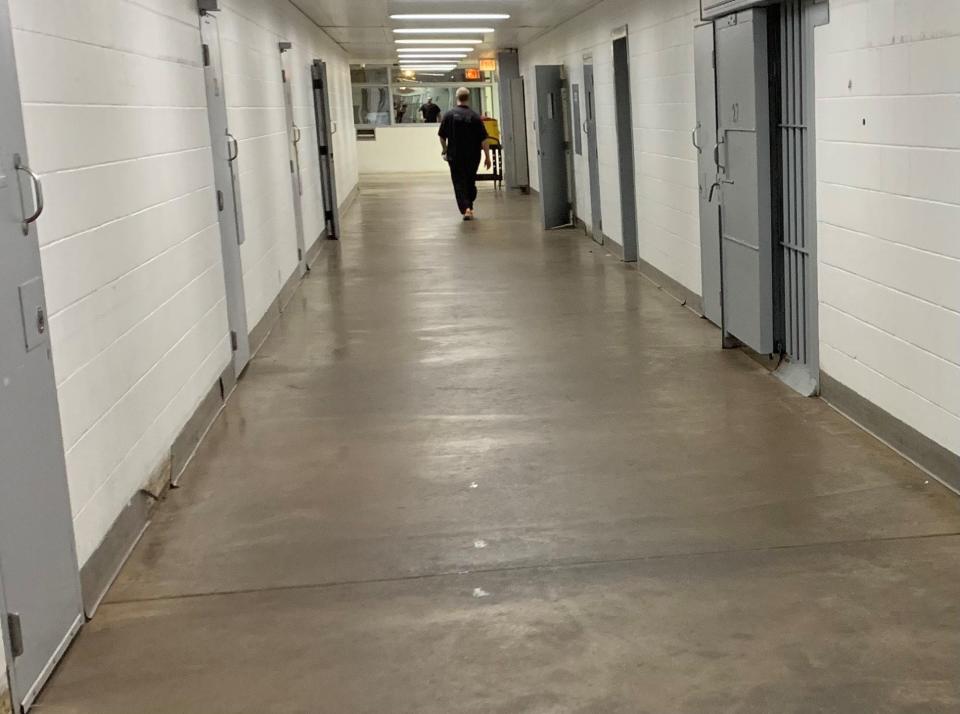
Becoming a trusted inmates helps to motivate them to stay in line, and also helps to reduce their jail time. It also serves to help pass the time as some inmates will have 8-hour workdays, where they do such things as cook and serve meals to other inmates.
As the tour of the female hall continued, Henry went on to describe programs that are open to inmates at the Taylor County Jail. Inmates can usually attend church services, outdoor recreation time, or groups like Alcoholics Anonymous.
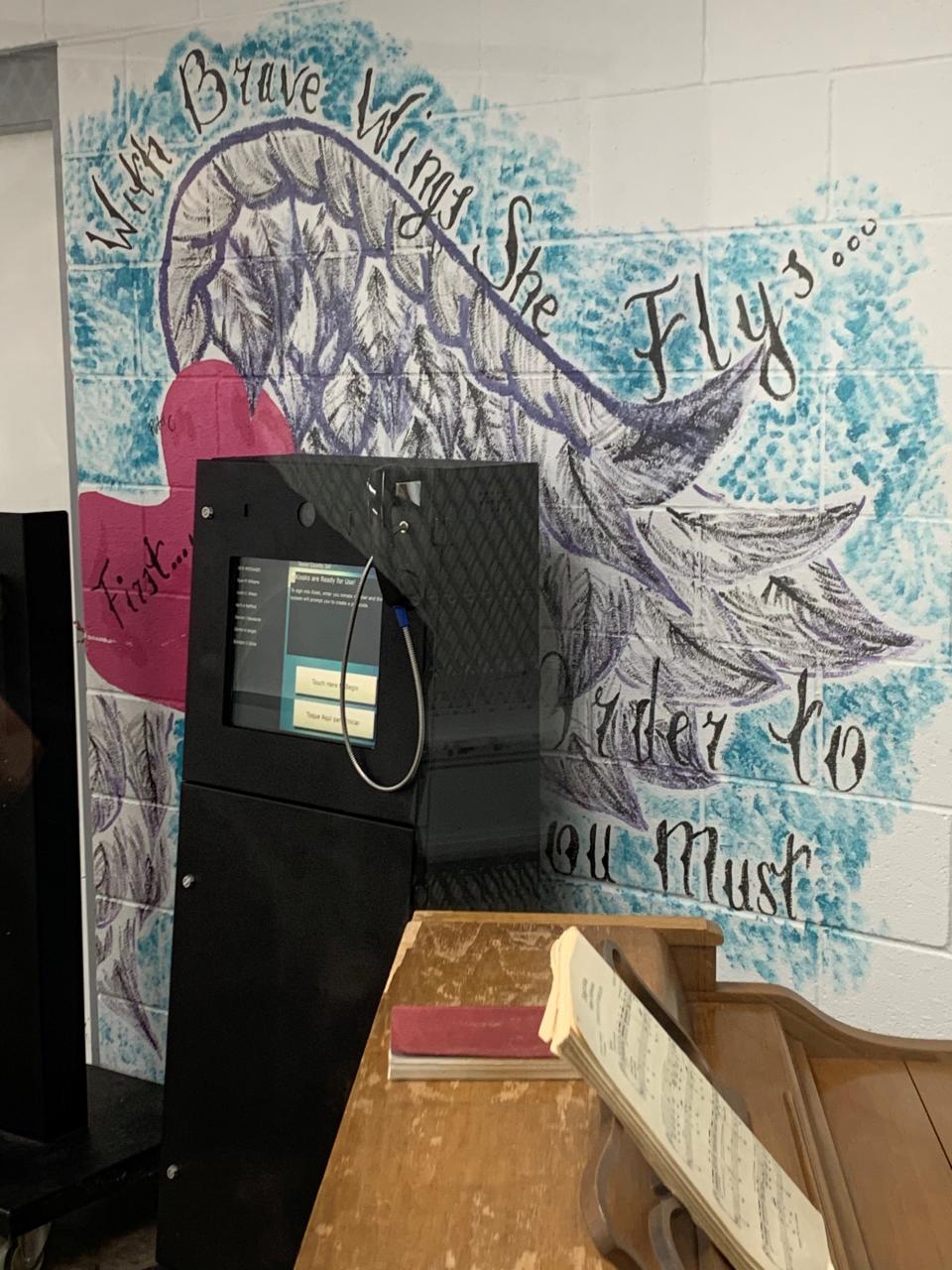
In the female unit, Henry has a group entitled "Mom builders," in which moms come together to get tips and training for raising their children when they are released from the jail. There is also "New Beginnings," which prepares the inmates for release with job training, education services, and future housing outside the jail.
In the end, Henry stressed that inmates "don't come on their best days. They're just people, human beings just like us." It was easy to see this sentiment carry over as to how she treated female inmates, with a friendly smile on her face.
'First line of defense is communication'
While Reporter-News did witness a pepper spray incident, this was a standalone incident amidst a mostly quiet morning. The biggest surprise about the jail was that the officers knew the inmates by name and that for the most part the inmates respected the officers.
When speaking with Captain Angel Gonzales of the Taylor County Jail, he stressed that 95% of inmates are compliant, and just "want you to listen and acknowledge what's going on with them." He also noted that "the first line of defense (for the correctional officers) is communication skills."
Gonzales ended with the message that inmates are "not bad people, they only made bad decisions," and that corrections officers are "not the judge and jury, we are safety and security."
This article originally appeared on Abilene Reporter-News: A day in the life: Taylor County Corrections Officer
